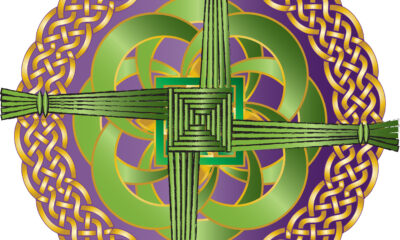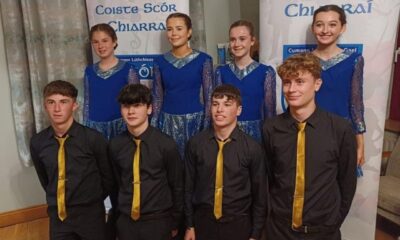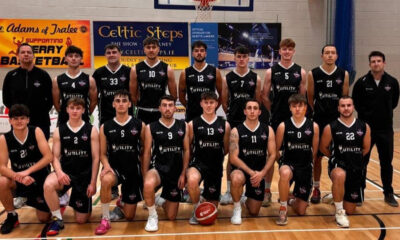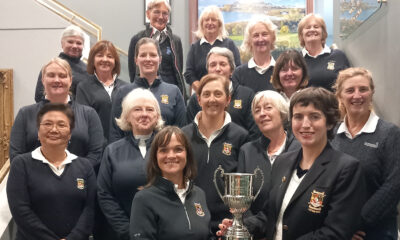News
KNOW YOUR RIGHTS: Apprenticeships

Ciara O'Gorman, Development Manager with South Munster Citizens Information Services discusses types of apprenticeships out there and how to go about applying for one.
What is an apprenticeship?
An apprenticeship is how people are trained in a craft trade or profession. You can get training in a traditional craft apprenticeship such as plumbing or carpentry or new apprenticeships such as accounting technician.
An apprenticeship programme provides on-the-job training with an employer along with off-the-job training in an education centre. You can start an apprenticeship from age 16 to 18 years depending on the apprenticeship programme. An apprenticeship can last two to four years, during which time you will spend some time in off-the-job training. When you complete an apprenticeship programme, you will get a recognised qualification at Level 5 or above on the NFQ framework.
Types of apprenticeships
The main craft trades and professions are set by SOLAS, employers and unions.
Craft apprenticeships
A craft apprenticeship will generally last for four years, during which time you will spend three different periods in off-the-job training. Craft apprenticeships include carpentry, plumbing, motor mechanics and electrical apprenticeships.
Generally, the first off-the-job training phase will take place in an Education and Training Board (ETB) while the subsequent off-the-job training phases will be in a Technological University or Institute of Technology. The skills you develop will be assessed through on-the-job competence testing as well as off-the-job modular assessment and examinations and, if you complete these assessments successfully, you will be awarded an Advanced Certificate – craft (Level 6 on the National Framework of Qualifications).
New apprenticeships in other areas of industry
Apprenticeships introduced from 2016 on lead to an award between Levels 5-10 on the National Framework of Qualifications. Each apprenticeship programme is between two and four years. New apprenticeships in ICT, finance and hospitality include software development, accounting technician and commis chef.
There are a number of models of on-the-job and off-the-job training, as well as different models of delivery and different target groups (including people already in employment). Industry-led groups work with education and training providers and other partners, to oversee the development and roll-out of new apprenticeships. You can search for apprenticeships on apprenticeship.ie.
Funding supports for apprenticeships
Traveller Apprenticeship Incentivisation Programme
The Traveller Apprenticeship Incentivisation Programme pilot project offers bursaries for members of the Traveller community to access apprenticeships.
Apprenticeship employer awards
Certain employers who provide apprenticeships can get an apprenticeship employers grant of €2,000 per year for each registered apprentice. Employers can also avail of a gender-based bursary.
Apprenticeship fees
Generally, an apprentice does not pay fees. However, apprentices pay a pro-rata registration fee (student contribution) if their off-the-job training takes place within a college such as an Institute of Technology or Technological University. The registration fee is generally based on the amount of time the apprentice spends in the college. Apprentices are not eligible for the student grant.
Apprenticeship wages and allowances
Rates of apprenticeship wages and allowances can vary depending on the type of apprenticeship and the industry you have chosen:
Apprenticeships developed before 2016:
While you are training on the job, your employer will pay you a recommended apprenticeship wage. The ETB pay a weekly allowance equivalent to that wage while you are training off the job. In some cases, the ETB will contribute to your travel and accommodation costs.
Apprenticeships developed in 2016 and after:
Your employer will pay you for the duration of the apprenticeship. The rate of pay is agreed between you and your employer.
Annual leave: Your statutory holiday entitlements continue to accrue during the off-the-job phases, but must be taken during the on-the-job phases at times agreed with your employer.
Apprentices who have children:
Working Family Payment (WFP) is a weekly tax-free payment for employees with children. If you are an apprentice and you have at least one child you may qualify for WFP, if you meet the conditions for WFP. Contact your local CIC for more details.
Other allowances
You should check with your employer or local ETB if you are entitled to any allowances such as a Tool Allowance. You should also check if you qualify for employment tax credits and reliefs.
How to qualify for an apprenticeship
To be eligible for an apprenticeship, you must be at least 16 years of age and have a minimum of grade D in five subjects in the Junior Cycle or equivalent exam. However, higher educational qualifications and other requirements may be required by employers. If you don't have these qualifications, you may still register as an apprentice with an employer if you:
Complete an approved preparatory training course followed by an assessment interview.
Are over 18 years of age and have at least three years of relevant work experience, in which case you will also be asked to do an assessment interview.
You will be asked to pass a colour-vision test for some apprenticeships.
How to apply for an apprenticeship
You can find apprenticeship jobs for craft and new apprenticeships on apprenticeship.ie. Apply directly to the employer before the closing date. You can also approach an employer to ask if they will consider taking you as an apprentice. If you are interested in a craft apprenticeship, you can also contact the Apprenticeship Section of your local ETB for details about applying.
For anyone needing information, advice or have an advocacy issue, you can call a member of the local Citizens Information team in Kerry on 0818 07 7860, they will be happy to assist and make an appointment if necessary. The offices are staffed from Monday to Friday from 10am to 4pm. Alternatively you can email on tralee@citinfo.ie or log on to www.citizensinformation.ie for further information.
News
Unbelievable, Bizarre, Unprecedented” Dingle’s All-Ireland title
GUBU (Grotesque Unbelievable, Bizarre Unprecedented):the acronym was the joint invention of Taoiseach Charles J. Haughey and his political arch-nemesis and lifelong opponent Conor Cruise O’Brien. The Cruiser coined the acronym […]























